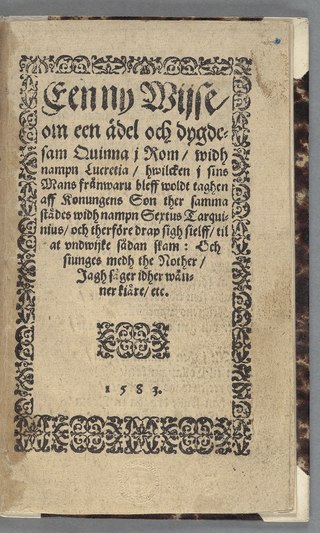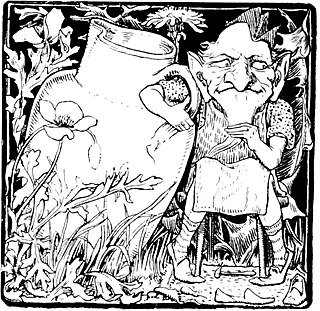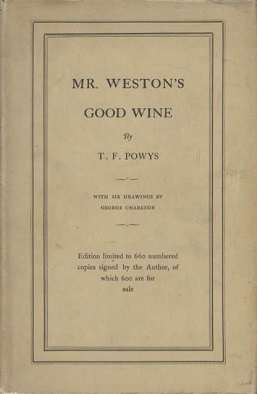Related Research Articles

Robin Hood is a legendary heroic outlaw originally depicted in English folklore and subsequently featured in literature, theatre, and cinema. According to legend, he was a highly skilled archer and swordsman. In some versions of the legend, he is depicted as being of noble birth, and in modern retellings he is sometimes depicted as having fought in the Crusades before returning to England to find his lands taken by the Sheriff. In the oldest known versions, he is instead a member of the yeoman class. Traditionally depicted dressed in Lincoln green, he is said to have stolen from the rich to give to the poor.

"John Barleycorn" is an English and Scottish folk song. The song's protagonist is John Barleycorn, a personification of barley and of the alcoholic beverages made from it: beer and whisky. In the song, he suffers indignities, attacks, and death that correspond to the various stages of barley cultivation, such as reaping and malting.
"Lillibullero" is a march attributed to Henry Purcell that became popular in England at the time of the Glorious Revolution of 1688.
"Sweet Polly Oliver" is an English broadside ballad, traceable from 1840 or earlier. It is also known as "Pretty Polly Oliver" and has several variant sets of lyrics, set to a single anonymous melody.
"The Daemon Lover" – also known as "James Harris", "A Warning for Married Women", "The Distressed Ship Carpenter", "James Herries", "The Carpenter’s Wife", "The Banks of Italy", or "The House-Carpenter" – is a popular ballad dating from the mid-seventeenth century, when the earliest known broadside version of the ballad was entered in the Stationers' Register on 21 February 1657.

A broadside is a single sheet of inexpensive paper printed on one side, often with a ballad, rhyme, news and sometimes with woodcut illustrations. They were one of the most common forms of printed material between the sixteenth and nineteenth centuries, particularly in Britain, Ireland and North America because they are easy to produce and are often associated with one of the most important forms of traditional music from these countries, the ballad.

The clurichaun or clúrachán is a mischievous fairy in Irish folklore known for his great love of drinking and a tendency to haunt breweries, pubs and wine cellars. He is related to the leprechaun and has sometimes been conflated with him as a shoemaker and a guardian of hidden treasure. This has led some folklorists to suppose that the clurichaun is merely a leprechaun on a drinking spree, while others regard them as regional variations of the same being. Like the leprechaun, the clurichaun is a solitary fairy, encountered alone rather than in groups, as distinct from the trooping fairies.
"The Parting Glass" is a Scottish traditional song, often sung at the end of a gathering of friends. It has also long been sung in Ireland, where it remains popular and has strongly influenced how it is often sung today. It was purportedly the most popular parting song sung in Scotland before Robert Burns wrote "Auld Lang Syne".
"Geordie" is an English language folk song concerning the trial of the eponymous hero whose lover pleads for his life. It is listed as Child ballad 209 and Number 90 in the Roud Folk Song Index. The ballad was traditionally sung across the English speaking world, particularly in England, Scotland and North America, and was performed with many different melodies and lyrics. In recent times, popular versions have been performed and recorded by numerous artists and groups in different languages, mostly inspired by Joan Baez's 1962 recording based on a traditional version from Somerset, England.
"The Broomfield Hill", "The Broomfield Wager" "The Merry Broomfield", "The Green Broomfield", "A Wager, a Wager", or "The West Country Wager" (Child 43, Roud 34) is a traditional English folk ballad.
"Robin Hood's Progress to Nottingham" is Child ballad 139, an original story that is part of the Robin Hood canon. This song has survived as, among other forms, a late 17th-century English broadside ballad, and is one of several ballads about the medieval folk hero that form part of the Child ballad collection, which is one of the most comprehensive collections of traditional English ballads.
Robin Hood and the Butcher is a story in the Robin Hood canon which has survived as, among other forms, a late seventeenth-century English broadside ballad, and is one of several ballads about the medieval folk hero that form part of the Child ballad collection, which is one of the most comprehensive collections of traditional English ballads. It may have been derived from the similar Robin Hood and the Potter.
Robin Hood's Golden Prize is Child ballad 147. It is a story in the Robin Hood canon which has survived as, among other forms, a late seventeenth-century English broadside ballad, and is one of several ballads about the medieval folk hero that form part of the Child ballad collection, which is one of the most comprehensive collections of traditional English ballads.
Tibb's Eve is a folk expression for a day which will never arrive, and also a celebration held on 23 December originating in Newfoundland and Labrador known as Tibb's/Tipp's Eve.

Mr. Weston's Good Wine is a novel by T. F. Powys, first published in 1927.
Tis A Plaine Case Gentlemen is an English broadside ballad housed in the Huntington Library. It was originally printed by Stephen Bukley in 1643, and is well known for its opening lines: "OH the distraction of this Factious age! / Have not wile-men (who are starke mad with rage, / Brought this faire Land to such a combustion, / That through their means we may feare confusion.".
The Clarret Drinker's Song: Or, The Good Fellows Design is an English broadside ballad published by John Oldham in 1680 and is set to the standard tune of "Let Caesar Live Long." An original copy of the ballad is located in the National Library of Scotland, however online facsimiles and recordings are available for public consumption.

Robin Hood and Little John is Child ballad 125. It is a story in the Robin Hood canon which has survived as, among other forms, a late seventeenth-century English broadside ballad, and is one of several ballads about the medieval folk hero that form part of the Child ballad collection, which is one of the most comprehensive collections of traditional English ballads.
Love in a Maze is an English broadside ballad that dates back, from estimation by the English Short Title Catalogue, to the 1640s, which immediately coincides with the publication of James Shirley's play, The Changes, or Love in a Maze, in 1639. The full title of the ballad is: "Love in a MAZE: / OR, The Young-man put to his Dumps. / Here in this Song you may behold and see / A gallant Girl obtain'd by Wit and Honesty; / All you that hear my Song, and mark it but aright, / Will say true love's worth gold, and breeds delight." It is set to the tune of, "The True Lovers Delight; Or, The Cambridge Horn." The ballad's opening lines are, "LAte in the Morning as I abroad was walking,/All in a meadow green, I heard two Lovers talking;." Extant copies of the ballad can be found at the Glasgow University Library, the British Library, the Huntington Library, the Pepys Library at Magdalene College, and the National Library of Scotland.
"When Jones' Ale Was New" is an English folk song about men of various trades drinking at an ale-house or tavern. Other titles include "Joan's Ale is New" and "When Johnson's Ale Was New". Originating in the 16th century CE it has been collected frequently from traditional singers in England, and has been found occasionally in Scotland and the USA. It has evolved over the years, and is popular as a chorus song in folk clubs in England.
References
- ↑ English Short Title Catalogue. "Wade, John" . Retrieved 8 September 2014.
- ↑ EBBA. "Tis Money makes a Man: Or The Good-Fellows Folly". English Broadside Ballad Archive. Retrieved 8 September 2014.
- ↑ Oxford English Dictionary. "Good Fellow, definition number 3". OED.com. Retrieved 8 September 2014.